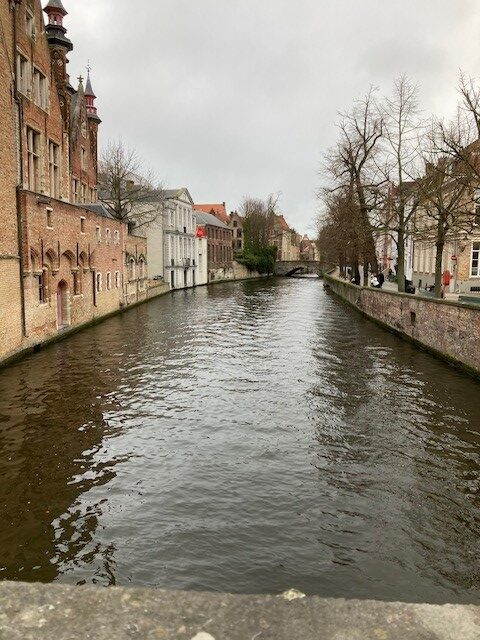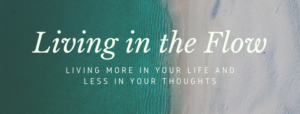
A nudge About the Power of Insights
I had a lovely weekend away in Brussels last month, and took this photo of the canal in Bruges. Living on water as I do, I love seeing different waterways and rivers, and had a thoroughly nice time living in the flow!
Living in the flow and the power of insights
I share a lot in my work about living in the flow of life as it shows up vs living in the endless streams of thoughts in our heads. When we have less on our minds it leaves so much more space for powerful insights to show up. And there’s such a different feeling and energy between that and our intellect.
In my experience, an insight is something that comes to you not from your personal thinking or knowledge, or problem solving, but from a deeper, quieter space of inner, or innate, wisdom. It comes with a different feeling of clarity, a knowing, and more like a fresh thought that bypasses old thinking, opinions or beliefs, and feels instinctively right.
Navigating life by insights = much less pressure
The wonderful thing about insights is that they don’t involve any feeling of pressure. They come from thoughts that feel inspired rather than those uncomfortable ones with lots of thinking attached to them. Those ‘should’ thoughts, I should be doing x, y or z ones, or those ‘what if’ thoughts, followed by diving head long into future worst case scenarios.
And because I see that insights come to us, not from any of that noisier thinking, but more in the form of quieter, inner nudges, out of the blue new ideas, it’s been so liberating to see it’s not all on us to make something happen or force action. The very opposite of all that conditioning that tells us if something is going to change or needs doing it’s all on us, or takes hard work, or is inherently pressurised. Gosh what a stressful way that is to live.
Instead of all that I’ve come to see that we work in a much kinder way than that. It’s not not up to us, but trusting in a quieter state of mind to bring us what we need through that quieter knowing, fresh insights, is without doubt a far nicer way to experience life.
Invitation – Tuesday 16 April 6.00-7.00pm UK
I’ve had my own fresh insight today to open up this conversation further. It’s one thing to read about something, and quite another to see how it might play out for us personally. To get an experiential understanding that moves the dial in our day to day lives.
So, before the voice of my should (thinking) gets noisier than my knowing (inspiration), here’s an invitation for you….
It links to my last two nudges on habitual thinking and changing your mind, both of which seem key when wanting to trust in, and follow, our inner knowing more. And we all know that quieter voice of knowing vs the often much louder noise of habitual thinking!
Let’s get together on a Zoom webinar and chat about ‘Turning down the noise on habitual thinking and upping the volume on inner knowing and insights’… with the major side benefit (I’m often told by clients) of freeing up a heap of our time!!
If you have some habitual thinking that is regularly taking up too much of your headspace, and would like to experience less of that and some fresh insights, then I think you’ll enjoy this conversation. If that sounds good, and you’re feeling that quieter nudge to join, then I’d love to see you on Tuesday 16 April 6.00-7.00pm UK. Just send a quick RSVP back and I’ll send you the Zoom link. And if you have any questions, do ask away. Otherwise I look forward to seeing you then.
Have a great rest of your week.
All the very best for now
Tamsin

If you want to ‘live more in your life and less in your thoughts’ this year then I share more in my Living in the Flow mini series. Just click on the link and you’ll receive a short nudge over the next 7 days. See it as your quiet moment of reflection to start off your day, help keep you on track, and minimise any habitual thinking.









